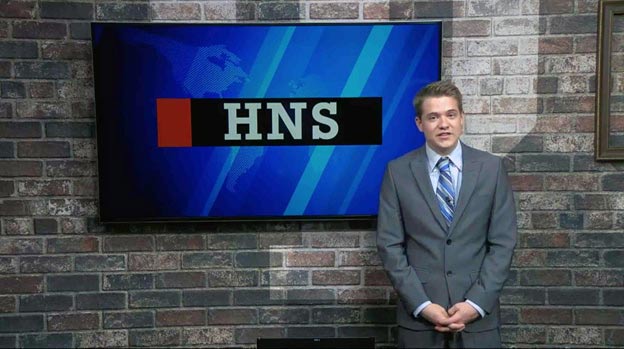I started working for BAM Weather in Indianapolis two days after graduation, and I’ve been working five days a week since. I took a small detour to attend the AMS conference in Austin. I still get my weekends: I like to relax, hang out with my girlfriend, and attend sports events. But I have to work if there’s something big going on. I have to at least be engaged in group updates, especially if there’s anything such as snow, ice--anything that’s going to be high impact.
What drew you into the Earth Science major?
There was no one thing. You know, many people have a weather event that makes an impression, like a tornado in their neighborhood. But for me it was just always there. I enjoyed “Weather on the Eights” on the weather channel, looking at model data. But I never thought it was something I could do. I think I knew atmospheric sciences was something I wanted to explore when I realized I didn’t want to go to any school that didn’t have meteorology.
What topics were you most excited to learn about in Earth Sciences classes?
Well, obviously Atmospheric Science. When I got here, I wanted to forecast snow, because it’s so hard to get it right. Severe storm weather forecasting came later when I took a mesoscale meteorology class.
What has been the most interesting/influential experience you have had as a major?
I’ve had so many experiences--from being elected weather club president my freshman year to working with Dr. Staten over the summer, to IUSTV, to Science Olympiad. My most informative experience was probably doing research with Dr. Staten. I learned where a lot of the models and research came from. IUSTV was my most interesting and challenging experience. I didn’t think I could do TV—didn’t think I had the face or the voice—but, it was a good experience. It challenged me. It was cool to do something I didn’t think I could do.
What advice would you give to new students in the major?
Do everything you can. Don’t make yourself crazy, but do everything you can possibly do that is available to you. Do Weather Club and try to get an elected position. At least try doing an IUSTV broadcast one time. Do research. And go above and beyond when you forecast; do the forecasting challenge. When you see forecasters doing something, research how to do it, because it will give you that much advantage later on. When you see something not being taught, bring it up in class, or learn about it yourself. I did a research project on mesoscale snow bands. If you have something you’re super-interested in, don’t just sit around and wait for it to be taught to you.
College isn’t just about taking classes and tests; it’s about learning what you love to do. And if you don’t find that, you’re not going to put yourself out ahead of the field--first for the checkered flag when it comes to jobs down the road. If you want to do forecasting, you’ve got to forecast. It’s like a sport; practice makes perfect--it’s not just about knowledge, it’s about applying yourself. Practice. Do everything you can.

 The College of Arts
The College of Arts